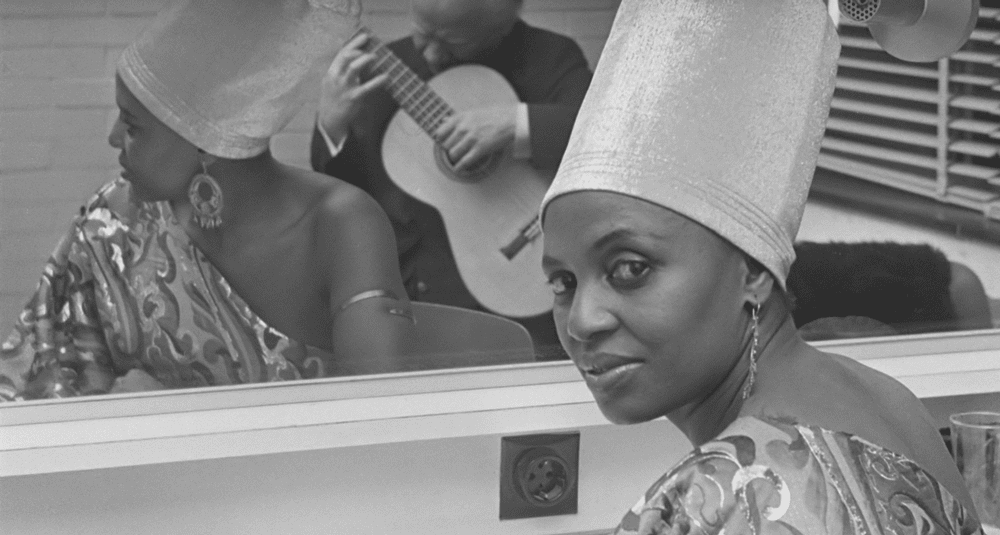What is the country of origin of ethno-jazz singer and political activist Miriam Makeba?
Last Updated:
Miriam Makeba, affectionately known as Mama Africa, is one of the most emblematic figures of ethno-jazz music and political activism. Born on March 4, 1932 in Johannesburg, South Africa, she is known not only for her international musical career, but also for her role as an activist against apartheid, a regime of racial segregation that marked her country for several decades.
Miriam Makeba grew up in a difficult environment due to South Africa’s segregationist policies. From an early age, she showed a marked interest in music, influenced by the rich musical culture of South Africa. It was in the 1950s that she began to make a name for herself, first as a member of several local musical groups, then as a solo singer. Her unique musical style blends traditional African rhythms, jazz and Western influences, creating a distinct genre often referred to as ethno-jazz.
However, it was in 1959, with her participation in the Manhattan Brothers and later the Skylarks, that she began to attract international attention. Her first international success came when she appeared in the 1959 documentary film Come Back, Africa, about the injustices of apartheid. Although initially censored in South Africa, the film won acclaim at several international festivals and catapulted Makeba onto the world stage.
Because of her outspoken opposition to apartheid and her appearance in Come Back, Africa, Miriam Makeba was banned from her own country in 1960, while on tour abroad. She only returned to South Africa after the end of apartheid in 1990. During her years of exile, she settled in the United States, where she enjoyed immense success. Her first album, Miriam Makeba, was released in 1960 and made her an international star. One of her most famous songs is Pata Pata, which became a worldwide hit in 1967.
Beyond music, Miriam Makeba used her celebrity to draw attention to racial inequalities in South Africa. In 1963, she testified before the United Nations, denouncing the abuses of the apartheid regime and calling for international sanctions against South Africa. This act of bravery reinforced her role as an activist, placing her at the heart of the anti-apartheid movement.
Miriam Makeba is an artist whose life is inextricably bound up with politics. After testifying before the United Nations, her South African passport was withdrawn. However, thanks to her influence and commitment, she obtained several passports from African countries such as Guinea, where she settled for a time.
While in Guinea, Makeba continued to sing, but also became involved in humanitarian and political causes. She became a goodwill ambassador to the United Nations, and continued to use her platform to denounce apartheid and promote human rights worldwide. Her marriage to American activist Stokely Carmichael in the 1960s also strengthened her commitment to civil rights in the USA.
Following Nelson Mandela’s release from prison in 1990 and the official end of apartheid, Miriam Makeba was invited to return to South Africa. Her return was eagerly awaited and she was welcomed as a national heroine. She resumed her musical career and continued to defend human rights and African unity.
Makeba never stopped singing, right up to her final days. In 2008, while giving a concert in support of Italian writer Roberto Saviano, she collapsed on stage following a heart attack. She died shortly afterwards, aged 76.
Miriam Makeba’s name is synonymous with resistance, resilience and a voice for the oppressed. She used her musical talent to express the suffering of her people and fight against the injustices of apartheid. Thanks to her commitment, she helped draw international attention to the realities of oppression in South Africa. Her musical legacy, meanwhile, continues to resonate around the world, inspiring new generations of artists.
Miriam Makeba hails from South Africa, a country marked by the struggle against apartheid, and she has become a global icon for both her music and her activism.
music

What is the country of origin of ethno-jazz singer and political activist Miriam Makeba?
Answer
Miriam Makeba, nicknamed Mama Africa, was born in South Africa. She is known for her political commitment against apartheid and her ethno-jazz music.